This post is part 4 of 6 in the series How I Became a Mother.
In keeping with the theme of “How I Became a Mother” this month, I thought it a fitting time for me to share my story about my not-so-glamorous entrance into the ranks of motherhood.
For some of us, it’s not all warm fuzzy feelings and roses.
Don’t get me wrong, I was SO excited to be a mom. My husband and I had been married for four years, I had finished graduate school, worked for two years, and had “the itch” to get pregnant and start the next phase of our life. I’d heard about postpartum depression (PPD), but I was convinced that it wasn’t something I would “let” happen to me, because, you know… I had a plan. I’ll make sure I get dressed in real clothes every morning, put on makeup, get out of the house, get plenty of exercise. If I think positive, that won’t happen to me. I’m going to enjoy motherhood!
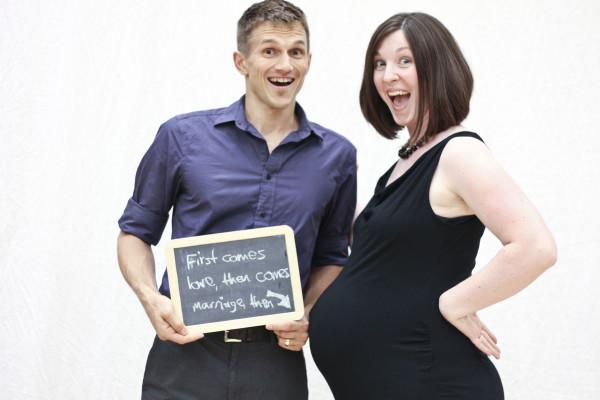
Little did I know, PPD isn’t something that you can just stave off with a little positive thinking.
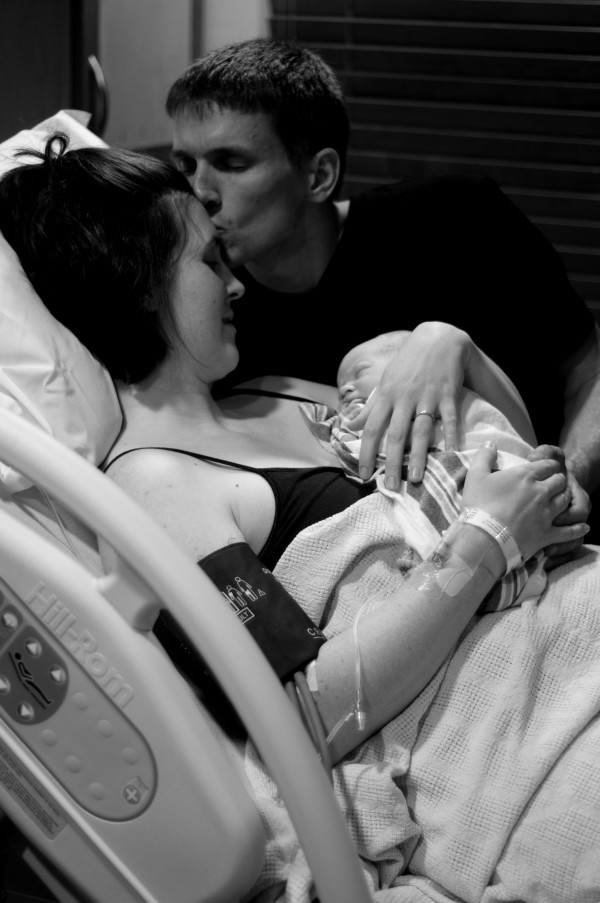
PPD: My Story
My first bump in the road happened in the delivery room. I hemorrhaged shortly after giving birth to my daughter. Thankfully, my midwife was able to stabilize me, but not before I’d lost a significant amount of blood. Because of my medical complications, I wasn’t able to attempt breastfeeding for many hours after delivery, and by the time I did, my sweet little peanut was so sleepy I couldn’t get her to latch on. This rocky start was the first in a snowball of nursing “complications,” including nipple shields, mastitis, and undiagnosed thrush that lasted over a month. And all this while I was iron-depleted, weak, and sleep-deprived, not to mention transitioning from full-time working professional to full-time SAHM. Three months later, my husband took a new job and we prepared to move out of state. Life was throwing some major changes my direction, and it felt like it was quickly spiraling out of (my) control.
I first realized that something was “off” when the insomnia hit. My babe would wake up for a feeding at 1 or 2 a.m., and after feeding her and laying her back down sound asleep, no matter what I tried, I never returned to sleep myself. During the day I was an anxiety-ridden mess. I would lay her down for a nap and then pace back and forth outside her bedroom door like a tiger in the zoo, millions of thoughts racing around in my head. What should I do? Why is she crying? I just fed her, but maybe she’s hungry? Did I lay her down too early? Did I lay her down too late? Should I rock her? Leave her? Go get something else done? My husband walked on eggshells; the slightest of “offenses” set me off like a bomb. I was like a taut rubber band, ready to snap.
My midwife had a mantra that she had repeated to me many times during my prenatal care, and around this time I remembered her wise words: “Call me if you start having more bad days than good days.” One day, through tears, I finally made the call.
The crazy thing was, I always imagined “postpartum depression” looking like a sad mom wearing baggy sweatpants, lying on the couch, and not having any desire to get up and do anything. For me, my hormone swings went in the opposite direction. Postpartum anxiety and perinatal mood disorders are real things as well, caused by the same crazy hormone shifts that happen in our wonderfully amazing baby-birthing bodies.
Treatment Options
(*Please note that I am just one mom sharing my story; do not substitute what worked for me for visiting a medical professional.)
My midwife first offered me a prescription anti-depressant, but because I was nursing I really wanted to avoid taking anything that would transfer into my breastmilk; so I opted to see a counselor instead. Just talking through my irrational thought processes was so incredibly helpful. She gave me strategies for recognizing when my thought patterns weren’t rational and helped me think through them more logically. I also confided in a friend who had been down a very similar emotional road just a few months prior, and just knowing that I wasn’t the only one going through this made me feel remarkably normal, and no longer alone.
…knowing that I wasn’t the only one going through this made me feel remarkably normal, and no longer alone.
Which is why I wanted to share my story with all of you. I kept silent about it for quite a few years, because for some reason, admitting I had PPD felt like admitting weakness. Like I wasn’t enjoying motherhood the way that I should. Or that in some way I wasn’t thankful for my kids, or for the gift of being a mom. But those are all lies! GOOD MOMS can suffer from PPD. The important thing is to recognize it, and seek treatment for it. And that treatment will look different for different moms, and can even vary within individuals from baby to baby.
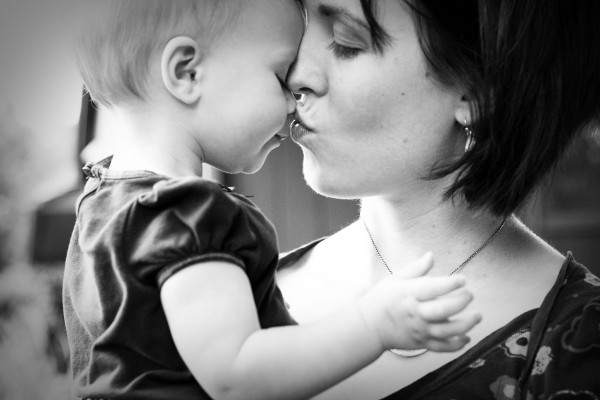
In my experience, I always have a major hormonal shift around three to four months after I have a baby. (Around the same time that I start losing a bunch of hair!) So I know to start watching for big emotional swings around that time. But keep in mind that PPD can strike at any time during the first year after giving birth.
I’ve also had a much harder time after postpartum hemorrhage, which happened with two of my four births. Postpartum hemorrhage has been shown to place women at higher risk for PPD.
After my first baby, I also ended up taking a short-acting prescription sleeping pill to help me overcome my insomnia. I’ve found that my PPD symptoms are magnified tremendously when I’m low on sleep.
After another baby, I discovered that high intensity, daily exercise almost completely eliminated my symptoms. Natural endorphin release is a powerful drug, so if you can find the time to make that happen, it’s worth it!
I took Zoloft for a few months after one birth. Yes, I was still breastfeeding. And yes, that baby is now a healthy, intelligent, thriving three-year-old boy. It’s safe. And effective. And I’d do it again if necessary.
During my most recent pregnancy I had a lot of anxiety about potentially heading into yet another season of highs and lows and feeling out-of-my-right-mind. (I think my husband did, too! Bless him, he’s lived with me through all of these!) So I wanted to set myself up for success as much as possible, and I’m thankful to report that four months after delivery, I feel more stable this time around than ever before. My self “treatment” has included sharing my PPD story with friends and asking them to pray for me. I also changed my diet and started eating mostly Whole30/Paleo, in balanced portions to maintain stable blood sugar throughout the day. And… I had my placenta encapsulated. Desperate times call for desperate measures, people. 🙂 Yes, it creeps me out a little if I think about it too long. So I just pop the pills and try not to think about it. I’m not sure which of the above preventative measures has been the most effective, but in combination they have worked amazingly well for me this time around.
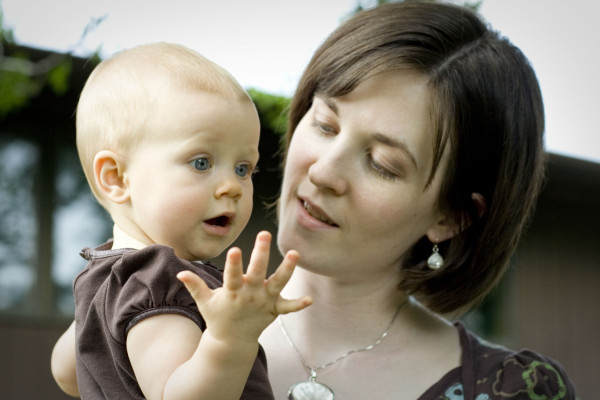
One thing that held me back from initially admitting I had PPD was the fact that I was still happy. I loved being a mother, and truly enjoyed my children. Don’t let this stop you from seeking the help that you need. If you think something is “off,” please, talk to someone. It doesn’t make you any less of a mother, and sometimes admitting weakness is truly a sign of strength. We, as mothers, must take care of ourselves if we are to provide the best possible care for our children!
Have you struggled with PPD? What has been most helpful for you in managing your symptoms?
Read more from our How I Became a Mother series, sponsored by UnityPoint Health – Des Moines:
- I Didn’t Know What I Was Missing
- A Premature Beginning
- A Birth Story
- The Day That Changed Everything
- A Thank You Story
About Our Series Sponsor
At UnityPoint Health – Des Moines we offer a wide range of Maternity, Pregnancy, and Parenting Services to help guide you through this exciting time. At each of our three Maternity Centers – Iowa Methodist, Iowa Lutheran, and Methodist West – you will find experienced staff and personalized care to help you welcome the newest member of your family. Becoming a parent is a new journey for many, so we offer a wide variety of services, including certified lactation consultants, childbirth education and preparedness classes, perinatal services, and patient care facilitators.









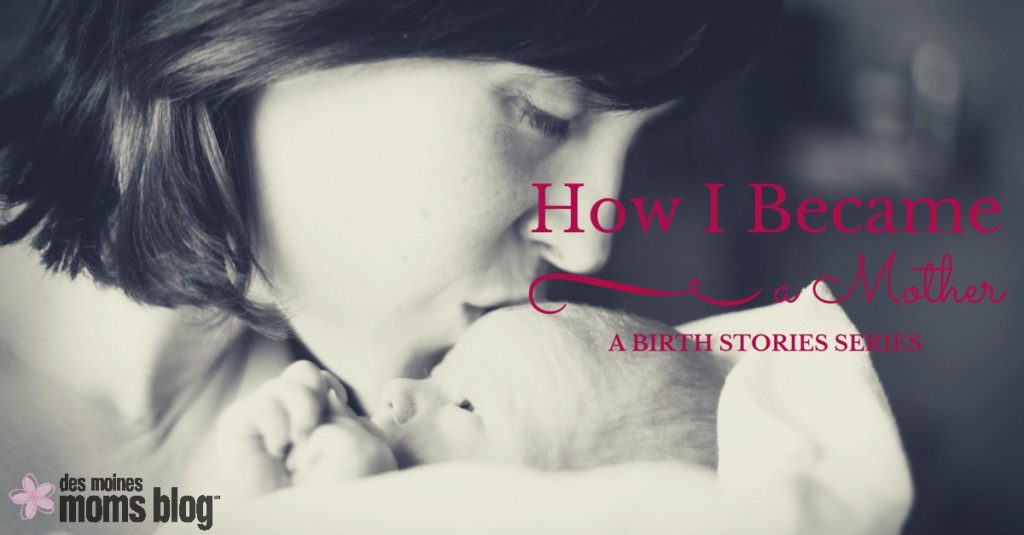

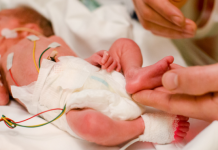







I SO related with this! I just had my third baby and have had many similar experiences regarding emotions and hormones after each of my babies. It really does help to feel like you are not alone in it, so it was therapuetic for me to read this 🙂
So glad to hear that, Kristy! That was my hope in sharing this, that it would encourage other moms with similar experiences!
Thanks for your bravery and sharing your story!
It truly was a pleasure to have this platform to share my story. Thanks for reading, Kaci.
[…] PPD and Me […]
[…] PPD and Me […]
Thanks so much for your candidness in your story! It’s so encouraging to me to have moms to relate to. Can you share about what service you used to have your placenta encapsulated? I’m interested, but not sure where to turn. Thanks!
Anne, yes! I should have linked to her in my post, since she’s local. Check out http://www.intrinsicbirthing.com/. Jacquelyn was very easy to work with and her turnaround time was super fast!